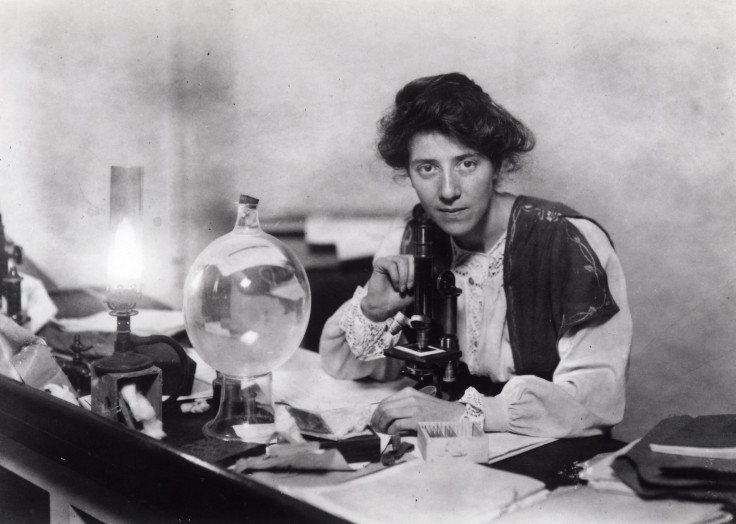Marie Stopes: Women’s Rights Activist Or Nazi Eugenicist?

Pro-life activists in Northern Ireland have already begun protesting the planned opening of the first private abortion clinic in Ulster, a clinic that will be run by the Marie Stopes International Organization, a British-based NGO that provides reproductive health care services.
While the subject of abortion elicits heated debated and passion from both opponents and supporters, some might be surprised, even appalled, to learn that Marie Stopes, the British women’s rights campaigner that the NGO is named after, was a great admirer of Adolf Hitler and Nazi-style eugenics.
Stopes, who died in 1958 at the age of 77, was never really in favor of abortion but steadfastly denounced the practice of women giving birth to unwanted babies. She and her husband, philanthropist Humphrey Verdon Roe, founded what is believed to be Britain’s first birth-control clinic -- the Mothers' Clinic in North London in March 1921.
By the 1930s, like many other scientists and scholars in Western Europe, Stopes had long embraced the concept of eugenics -- “perfection of the human race through selective breeding” -- and combined her theories of eugenics with her advocacy of birth control.
As early as July 1922, in a self-published tract called "Birth Control News," she wrote: "Sterilization of the unfit raises a hornet's nest, but no one worries at all about the daily sterilization now going on of the fit. Young married men of the professional classes are today often forced by conditions to remain sterile, though they passionately desire the healthy children they could have if they did not have hordes of defectives to support in one way or the other."
In another book, entitled "Radiant Motherhood," Stopes criticized any society that “allows the diseased, the racially negligent, the thriftless, the careless, the feeble-minded, the very lowest and worst members of the community to produce innumerable tens of thousands of stunted, warped and inferior infants.”
Moreover, in that era of ascendant fascist rule in Germany and Italy, her advocacy took on a rather dark and sinister aspect. Indeed, she called for "the sterilization of those totally unfit for parenthood,” including "the inferior, the depraved.”
Indeed, in 1935, she attended the International Congress for Population Science in Berlin (two years into Nazi rule) and frequently wrote and spoke of such concepts as “racial purification” and "racial degradation,” leading to direct charges that she was racist, anti-Semitic and virulently anti-Catholic.
Stopes’ obsession with eugenics even applied to her own family. She expressed horror when her son Harry married a woman with an eye condition that she feared would be inherited by her grandchildren.
“Mary [her daughter-in-law] has an inherited physical defect and morally should never bear children,” she angrily wrote. “By marrying her he [Harry] had betrayed his parents and made a mock of our life's work for eugenic breeding and the race.”
(Harry was subsequently cut out of Stopes’ will.)
Moreover, in August 1939, just one month before Britain went to war with Germany, Stopes sent Adolf Hitler a copy of her book "Love Songs for Young Lovers," which included the following introductory letter: “Dear Herr Hitler, love is the greatest thing in the world: So will you accept from me these [poems] that you may allow the young people of your nation to have them? The young must learn love from the particular 'till they are wise enough for the universal. I hope too that you yourself may find something to enjoy in the book.”
In 1942, well into the Second World War, Stopes composed a poem that included the stanza: “Catholics, Prussians, the Jews and the Russians, all are a curse, or something worse.”
In 2008, Britain’s Royal Mail was bitterly criticized by many quarters for honoring Stopes with a commemorative stamp as one of the leading British women of the 20th century.
A prominent British cleric named Peter Mullen, rector of St. Michael's in the City of London, condemned Stopes as a Nazi sympathizer and added: “She campaigned to have the poor, the sick and people of mixed race sterilized. The managers of the Royal Mail deserve to be condemned for their honoring Marie Stopes.”
© Copyright IBTimes 2024. All rights reserved.



















